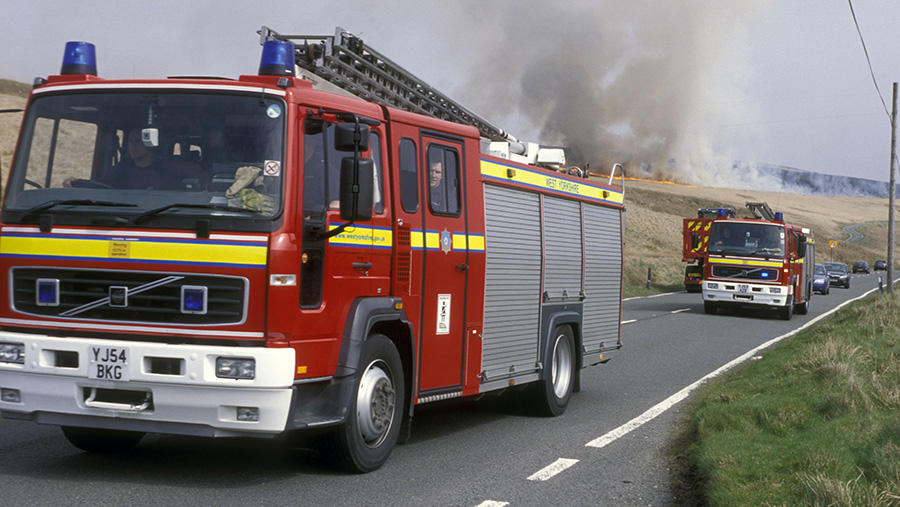Investigations into causes of weekend farm fires
 Library image © Photofusion/REX/Shutterstock
Library image © Photofusion/REX/Shutterstock Emergency services are investigating the causes of two separate farm fires over the weekend – one in Cumbria and one in Somerset.
Almost 16,000 chickens were killed in a large fire at a poultry farm on the outskirts of Carlisle, say firefighters.
The blaze broke out before noon on Sunday (19 March) at Spital Syke Farm at Great Orton, Cumbria.
Six fire engines attended the scene using hose reels and main water jets to fight and stop the flames from spreading, said Cumbria Fire and Rescue Service.
See also: Farm fires cost industry up to £100m a year
One poultry shed containing almost 16,000 birds went up in flames but firefighters managed to stop the blaze from spreading to a second shed.
Flames leapt into the air and fire crews were unable to save birds in the first shed and the roof collapsed during the afternoon.
The second shed contained a similar number of birds.
Smoke was visible for miles around and local residents were advised to keep their windows closed as it drifted across the area.
After bringing the blaze under control, fire crews returned to the scene at regular intervals during the night to check it remained safe.
Nobody was injured in the fire and an investigation is under way to find out how it was caused.
Straw fire
Meanwhile, in a separate incident, emergency services in Somerset were called to a report of a fire in a farm building containing a combine harvester and a tractor.
Fire appliances, special appliances and an operational assurance officer were mobilised to the incident on Sunday evening at Tinkers Lane, Newbury, just outside Frome.
On arrival crews stood down some of the proceeding appliances as they were not required.
Crews used a high-pressure hose reel jet to extinguish a small amount of straw on fire which was affecting the combine harvester.
The cause of the fire was deliberate.
Preventing fire on poultry farms
Constant risk assessment
It’s a legal requirement to have a formal assessment of the fire risk to buildings. But in practice, any combustible material, or mess, should be viewed as a potential fire risk – and removed immediately.
Arson attacks
Farms are isolated, difficult to monitor all the time and full of flammable objects. But a fire on a poultry farm can devastate a business in minutes – not to mention threaten thousands of birds. Keep an eye out for suspicious activity – especially if there has been a spate of attacks in the area.
Electrical safety
Poultry sheds are high-risk when it comes to electrical safety. Wiring is in constant use in a combustible environment. That’s why it is crucial to keep up with regular checks and inspections. Instil a culture of awareness and an overheating cable might be spotted early – and prevent disaster.
Employee training
Training should include a strong safety message and instil a culture of scrupulous fire precaution – and follow agreed fire prevention practices; you are responsible for the safety of your staff.
Source: Poultry World
